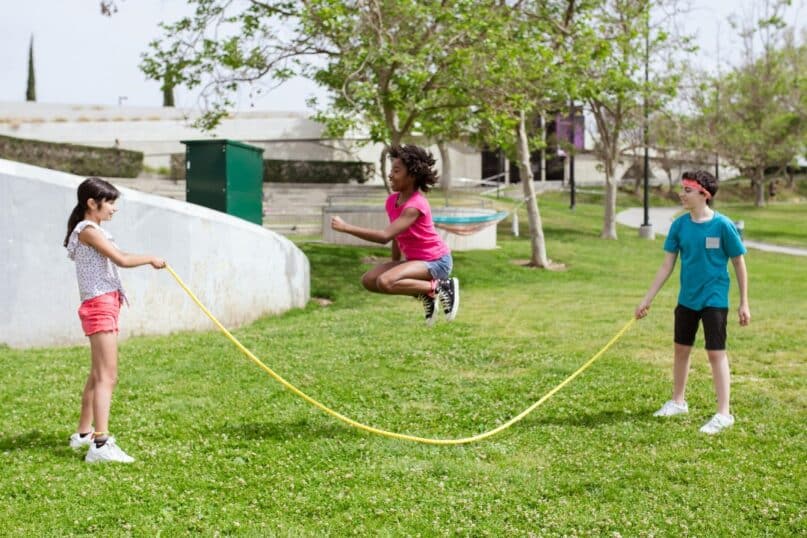Disclaimer: Devoted Grandma is reader-supported. If you purchase anything through my site, I may receive a small commission (at no cost to you). Thank you.

Ah, the precious moments we grandparents spend with our grandchildren! Yet, as delightful as we find their company, there are times when we might unintentionally embarrass them—especially in public. Here are 15 things grandchildren often wish their grandparents wouldn’t do when out and about together. Let’s keep these in mind so we can continue building loving, respectful memories.
1. Overly Loud Conversations
We come from a generation where you speak to be heard. But shouting, “Did you remember to wear clean underwear?” across the store might not go over well with a shy grandchild. It’s important to keep our volume moderate, especially in quieter environments. A whispered comment or a conversation at a normal tone goes a long way in respecting their comfort level and saving them from unnecessary embarrassment.
2. Sharing Embarrassing Stories
While it’s tempting to recount tales of their toddler years or that funny incident involving potty training, these stories are best saved for family gatherings. Sharing them with the cashier at the grocery store or a stranger at the park can make our grandchildren feel exposed. Remember, what’s heartwarming to us might be mortifying to them. Let’s treasure those moments privately.
3. Kissing Them in Front of Their Friends
We love to smother our grandchildren with affection, but public displays of grandparental love can make them squirm, especially in front of their peers. A quick hug or a pat on the shoulder might be more acceptable for older kids and teenagers. It’s about finding a balance—we can still show affection in ways that make them feel loved without overwhelming them.
4. Making Fashion Comments
Even if their ripped jeans or oversized hoodie seem baffling to us, critiquing their style in public can make them feel judged. Fashion is a personal expression, and their choices may be important to them. Instead of commenting negatively, try offering a compliment or simply accepting their outfit without judgment. It builds trust and shows respect for their individuality.
5. Acting Overly Protective
It’s second nature to look out for our little (or not-so-little) ones, but shouting, “Watch out for that curb!” or holding their hand unnecessarily might make them feel babied. Trust them to navigate small challenges. If they need help, they’ll let us know. Being a steady presence without hovering shows confidence in their abilities.
6. Talking About “Back in My Day”
We all have stories about how things were “in our time,” but too many comparisons can make our grandchildren feel disconnected or even annoyed. Instead of focusing on differences, why not ask them about their experiences? Show genuine interest in what’s current for them, and they’ll appreciate the effort to bridge the generational gap.
7. Correcting Their Manners Publicly
If they forget to say “please” or “thank you,” gently remind them later. A public critique might feel like a spotlight on their shortcomings. Nobody likes to be called out in front of others, and children are no different. Addressing these moments privately can be far more effective and less stressful for everyone involved.
8. Overloading Their Plate with Food
Ordering for them or insisting they finish everything on their plate can come off as controlling. It’s wonderful to encourage healthy eating habits, but giving them the autonomy to decide what and how much to eat fosters independence. Of course, if they’re reaching for dessert first, a gentle nudge toward balance might be appreciated.
9. Talking to Strangers About Them
Introducing them as “My grandson, the one who got a C in math last semester” to random strangers can feel intrusive and humiliating. Our grandchildren’s lives and challenges are not for public consumption. Instead, celebrate their achievements or simply introduce them with pride without sharing unnecessary details.
10. Using Outdated Slang
Trying to sound “cool” by saying things like “lit” or “yolo” might feel awkward to them, especially if we’re not using the terms correctly. Stick to your natural way of speaking—it’s endearing and authentic. If you’re curious about their slang, ask them to explain it to you. They’ll appreciate the interest without the cringe factor.
11. Excessive Picture-Taking
Capturing memories is lovely, but snapping photos every five minutes and demanding posed shots can be frustrating. Instead of treating every outing like a photoshoot, focus on a few candid moments that truly capture the day. And remember, not every memory needs a digital footprint; some are best kept in our hearts.
12. Pointing Out “Bad Influences”
Commenting loudly about other kids’ outfits, behavior, or language might make your grandchild feel self-conscious about being associated with you in that moment. While it’s natural to have opinions, voicing them discreetly or not at all might be better for maintaining harmony.
13. Forgetting Their Boundaries
Calling them by a childhood nickname like “Snugglebug” or “Boo-boo” in front of their friends might lead to some serious eye rolls. Save those terms of endearment for private moments. Respecting their evolving identity shows that we see them as the individuals they’re becoming.
14. Overloading on Compliments
While it’s natural to want to praise them, doing so excessively or for trivial things can feel patronizing—especially for teenagers. Subtle encouragement and genuine recognition of their efforts will resonate more deeply. Compliments are wonderful when they come across as sincere and meaningful.
15. Discussing Personal Issues Loudly
Whether it’s asking about their acne routine, grades, or commenting on their love life, sensitive topics are best addressed in private. Respect their need for discretion and privacy, especially in public settings. Building trust means showing them that we can respect their boundaries.
How to Find the Balance
Embarrassing our grandchildren is never our intention, but it’s easy to forget how certain actions or comments might make them feel. The key to avoiding these missteps is simple: empathy. Take a moment to see the situation from their perspective. Would we have felt comfortable if our grandparents did the same when we were young?
Building a Strong Relationship
Remember, the goal isn’t perfection but connection. It’s okay to slip up occasionally—what matters most is how we respond. If we notice they’re uncomfortable, a simple apology or a change in behavior can go a long way. By being mindful of their preferences and respecting their growing independence, we show them that our love is not only unconditional but also adaptable to their needs.
By staying in tune with their world and being considerate of their feelings, we can strengthen our bond with our grandchildren. After all, being a grandparent is about more than sharing our wisdom; it’s about creating a safe and supportive space where they can flourish. And isn’t that what we all want for them?

